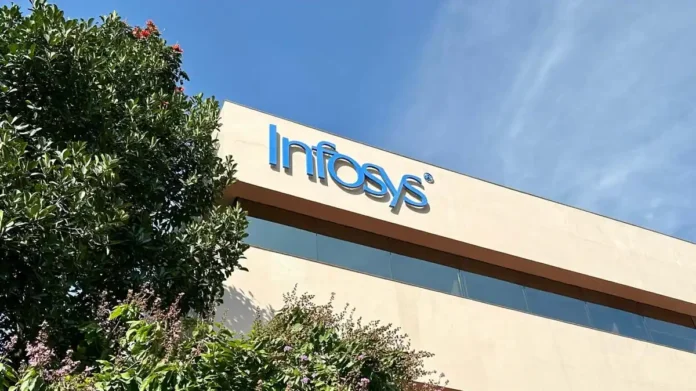Infosys counter lawsuit against Cognizant has brought to light a fierce legal battle between two IT giants, raising questions about anti-competitive practices and intellectual property (IP) misuse. Filed in a Texas federal court, Infosys alleges targeted poaching and restrictive practices by Cognizant, escalating an already intense dispute in the global IT sector.
Why Infosys Filed A Counter Lawsuit?
Infosys’s counterclaim is a response to a lawsuit filed by Cognizant subsidiary TriZetto in August last year. TriZetto accused Infosys of misappropriating trade secrets related to its healthcare insurance software, including the widely used Facets and QNXT platforms.
In its counter lawsuit, Infosys alleged that Cognizant has engaged in anti-competitive practices that harmed its ability to compete effectively in the IT services market.
Key accusations by Infosys include:
- Targeted Poaching: Infosys claims that Cognizant deliberately recruited its senior executives, including S Ravi Kumar, who became Cognizant’s CEO in 2023. Infosys argues that this move hindered the development of its competing healthcare software, Infosys Helix.
- Restrictive Practices: Cognizant allegedly restricted its clients from awarding IT services to competitors and withheld essential software training. Infosys contends that these actions stifled fair competition and disrupted its market presence.
Infosys is seeking damages three times the amount of its losses, along with attorney fees, although the exact monetary claim remains undisclosed.
Cognizant’s Response To Infosys Allegations
Cognizant has denied the accusations and reiterated its stance on intellectual property protection.
“Cognizant encourages competition, but competitors cannot use Cognizant’s IP to unfairly compete, as Infosys has done,” the company stated. It has vowed to take firm action against any misuse of its proprietary data.
Background Of The Dispute: TriZetto’s Lawsuit Against Infosys
The legal battle began with TriZetto’s claims that Infosys had misappropriated its trade secrets. According to TriZetto, Infosys repackaged proprietary data into its product under the guise of “Test Cases for Facets.” These platforms are critical to automating administrative tasks for healthcare insurers, making the dispute particularly significant in the healthcare IT space.
Infosys has countered these claims by arguing that Cognizant’s actions, including restrictive contract clauses and targeted poaching, have created an unfair competitive environment.
Implications For The IT Industry
This legal dispute has significant implications for the global IT services industry, particularly in the competitive healthcare technology sector.
- Impact On Innovation: Allegations of IP misuse and poaching raise concerns about the balance between competitive innovation and ethical practices.
- Legal Precedent: The outcome of this case could set a precedent for how anti-competitive practices and IP disputes are handled in the IT industry.
- Reputational Risks: Both companies face reputational challenges as the case unfolds, which could influence client relationships and market dynamics.
Infosys Helix Vs. TriZetto’s Platforms
At the center of the dispute is Infosys Helix, a healthcare software product that directly competes with TriZetto’s Facets and QNXT platforms.
- Infosys Helix is designed to streamline healthcare operations, offering capabilities similar to those provided by TriZetto’s products.
- TriZetto’s Facets And QNXT Platforms are widely used in the healthcare industry to automate administrative tasks, making them critical to insurance providers.
Infosys alleges that Cognizant’s actions, including executive poaching, delayed the development and deployment of Infosys Helix, giving TriZetto an unfair advantage.
Legal And Competitive Dynamics
The case, filed in the US District Court for the Northern District of Texas, underscores the competitive intensity in the IT services sector. As companies seek to gain an edge, disputes over talent acquisition and IP rights have become increasingly common.
While Infosys accuses Cognizant of anti-competitive practices, Cognizant’s allegations of IP misuse against Infosys highlight the complexities of maintaining fair competition in a rapidly evolving industry.
What’s Next In The Legal Battle?
As the case progresses, both companies are expected to present detailed evidence to support their claims. Legal experts suggest that the outcome could hinge on:
- Proving IP Misuse: TriZetto must demonstrate that Infosys unlawfully used its proprietary data.
- Establishing Anti-Competitive Practices: Infosys will need to substantiate its claims of restrictive practices and targeted poaching by Cognizant.
- Determining Damages: The court will assess the financial impact of the alleged actions on both companies.
Broader Industry Takeaways
This high-profile legal battle serves as a cautionary tale for IT firms navigating the thin line between aggressive competition and ethical practices. It also highlights the need for clear guidelines on talent acquisition, IP protection, and competitive behavior.
As the case unfolds, it will not only shape the dynamics between Infosys and Cognizant but also influence how other companies approach competition and innovation in the IT industry.



